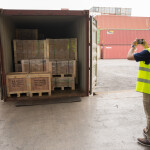17
Apr 2014
Why to check suppliers for a slave labor?
Just half of UK manufacturing companies are auditing their first tier suppliers for child workers, slaves and conflict minerals, according to researches.
It found fewer – 38 per cent – are auditing tier two vendors on the same criteria; and one in five said they are confident in suppliers’ ethical compliance purely because of personal relationships.
The study revealed 80 per cent of UK manufacturers said they were “very confident” their tier one suppliers did not use slave labor, however just over half were hopeful this was the case for tier two suppliers.
For avoiding child labor, 70 per cent were “very confident” in tier one suppliers, but less than half had the same assurance for tier two suppliers. The results were similar for conflict minerals and using unaudited factories.
Researchers added the majority of respondents (96 per cent) were confident they were effectively managing risks in their supply chains. Although less than half said they map their supply chain to identify suppliers.
The company interviewed 108 manufacturing companies with more than 250 employees.
It is very difficult for buyers to audit supply chains effectively from tier two onwards, and called for manufacturers to collaborate. “If a number of manufacturers are asking the same questions you are more likely to be able to engage with suppliers further down the chain”.
Chamberlain added buyers cannot rely purely on trust. “Unfortunately the number of instances where they have assumed things are alright, it is not rigorous enough when you get down to the full length of your supply chain and it means that trust is no longer enough, it probably never was,” he said.
“I think it’s being more exposed because standards are constantly being increased and the large manufacturers have more to lose, so they should depend less on trust and they need to do auditing.”
CIPS group CEO David Noble echoed Chamberlain’s views on trust. He added: “We can’t underestimate the complexity of today’s supply chains and neither should we ever underestimate the value that appropriately trained and skilled procurement and supply professionals bring. Ensuring as much visibility throughout the tiers of supply chains as possible is critical in reducing risk to reputation and finances.”
Richard Collins, executive director at Achilles, said: “We would urge large businesses to get ahead and map their supply chains to identify exactly who their suppliers are, and then audit each one in terms of business performance and ethics.”































